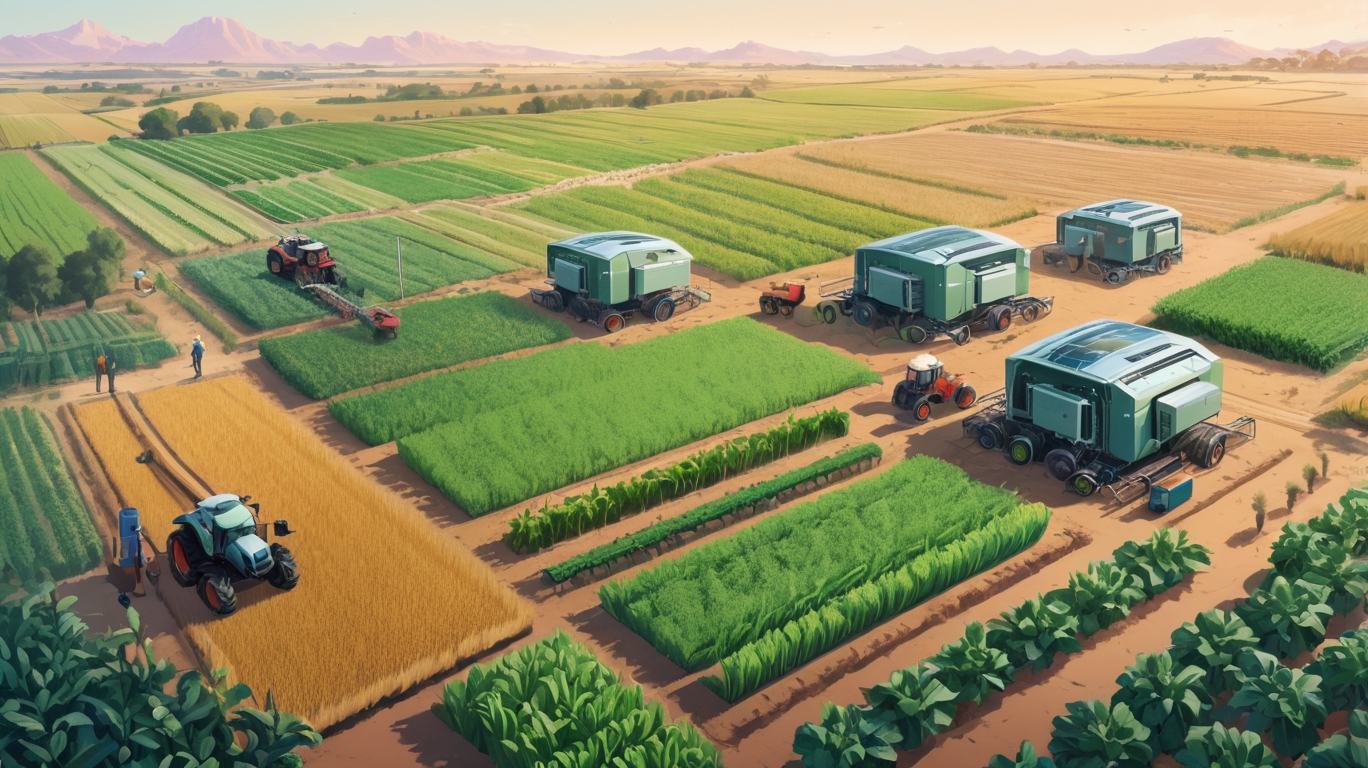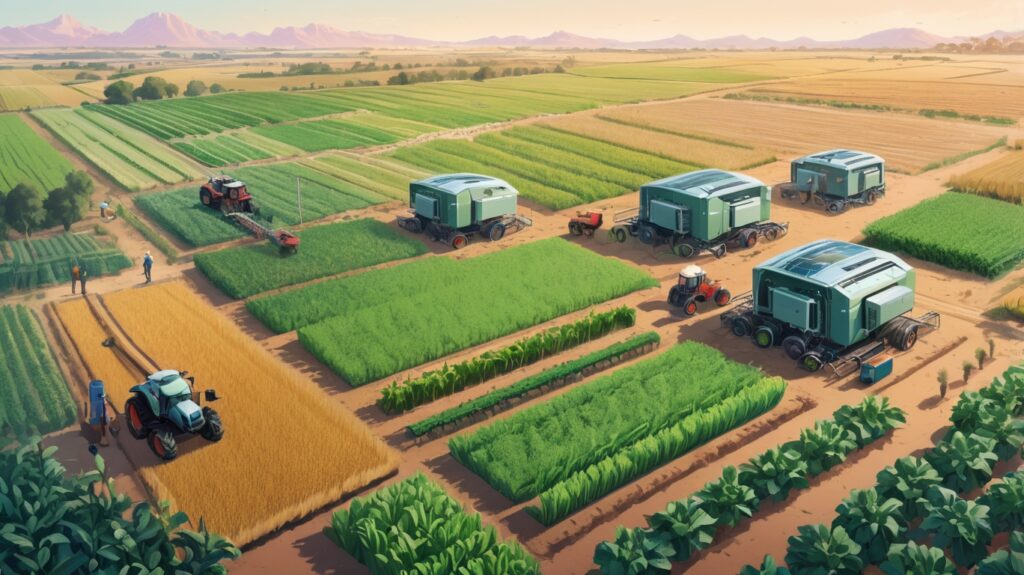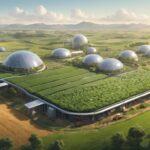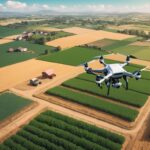How AI is Quietly Transforming Agriculture
In the vast, open fields where tradition and innovation often meet, a quiet revolution is taking place. Artificial intelligence (AI) is slowly but profoundly changing the way we grow food, manage resources, and sustain our planet. Unlike the flashy disruptions seen in other industries, AI’s role in agriculture is subtle—yet its impact is undeniable.
From precision farming to predictive analytics, AI is helping farmers make smarter decisions with less guesswork. The result? Healthier crops, more efficient resource use, and a gentler footprint on the environment. Here’s how AI is reshaping agriculture—one field at a time.

1. Precision Farming: Smarter Decisions, Less Waste
One of AI’s most significant contributions is precision agriculture—a method that uses data to optimize farming practices. Sensors, drones, and satellite imagery collect real-time information on soil health, moisture levels, and crop conditions. AI then processes this data to provide actionable insights.
- Smart Irrigation: AI-powered systems analyze weather forecasts and soil conditions to deliver the exact amount of water needed, reducing waste.
- Targeted Fertilization: Instead of blanket applications, AI identifies nutrient-deficient areas, ensuring fertilizers are used efficiently.
- Pest Detection: Machine learning models can spot early signs of disease or pest infestations, allowing for timely intervention.
This level of precision means farmers can achieve higher yields while conserving water, energy, and chemicals.
2. Autonomous Machinery: The Rise of Robot Farmers
Gone are the days when farming was solely about manual labor. Autonomous tractors, robotic harvesters, and AI-driven weeders are now tending to fields with minimal human intervention.
- Self-Driving Tractors: Guided by GPS and AI, these machines plow, plant, and harvest with remarkable accuracy.
- Weeding Robots: Using computer vision, these bots distinguish between crops and weeds, eliminating the need for herbicides.
- Drones for Crop Monitoring: Equipped with multispectral cameras, drones scan fields to detect stress factors invisible to the naked eye.
These innovations not only reduce labor costs but also minimize human error, leading to more consistent and sustainable farming.
3. Predictive Analytics: Farming with Foresight
AI doesn’t just react—it predicts. By analyzing historical data, weather patterns, and market trends, AI helps farmers anticipate challenges before they arise.
- Yield Prediction: Machine learning models estimate harvest volumes, helping farmers plan storage and sales.
- Disease Forecasting: AI can predict outbreaks based on environmental conditions, allowing preemptive action.
- Market Demand Insights: By tracking consumer trends, AI assists in deciding which crops to plant for optimal profitability.
This forward-thinking approach reduces uncertainty, making farming more resilient against climate fluctuations and economic shifts.
4. Sustainable Agriculture: A Greener Future
With growing concerns over climate change and resource depletion, sustainability is no longer optional—it’s essential. AI is playing a key role in making agriculture more eco-friendly.
- Soil Health Monitoring: AI analyzes soil composition over time, recommending crop rotations that prevent degradation.
- Reduced Chemical Use: By precisely targeting pests and diseases, AI minimizes the need for pesticides and herbicides.
- Carbon Footprint Tracking: Some AI tools help farmers measure and reduce their emissions, contributing to greener practices.
The result is a farming system that not only produces food but also protects the land for future generations.
A Quiet Evolution
AI’s integration into agriculture isn’t about replacing farmers—it’s about empowering them. By handling repetitive tasks, providing data-driven insights, and enhancing efficiency, AI allows farmers to focus on what they do best: nurturing the land.
As this technology continues to evolve, one thing remains clear: the future of farming is not just about growing more—it’s about growing smarter. And in this quiet transformation, AI is proving to be an invaluable ally.
Would you embrace AI on your farm, or do you think some aspects of agriculture should remain untouched by technology? Share your thoughts below. 🌱



